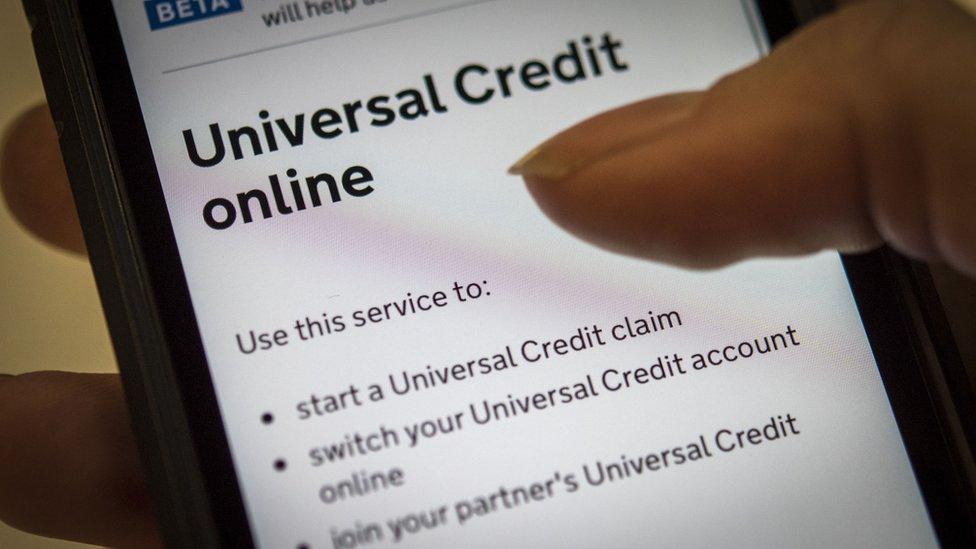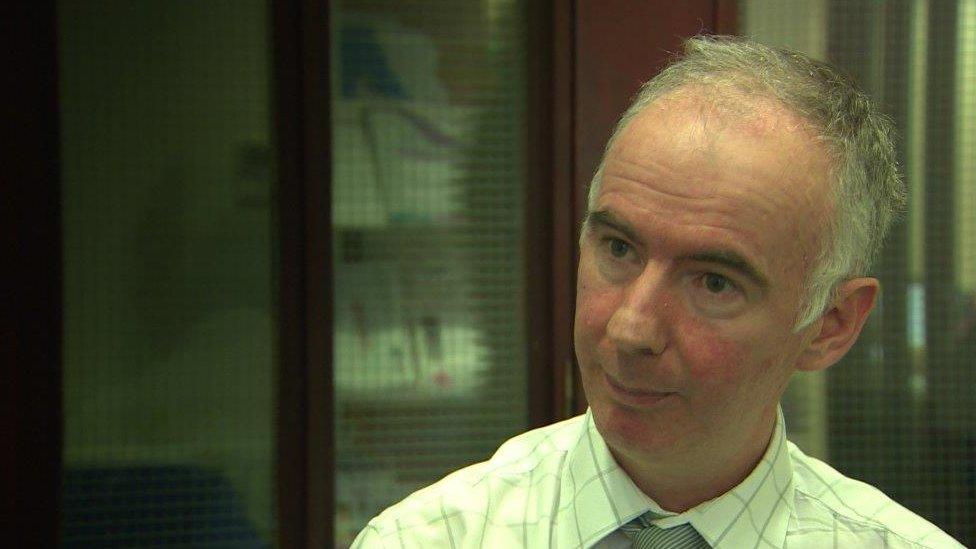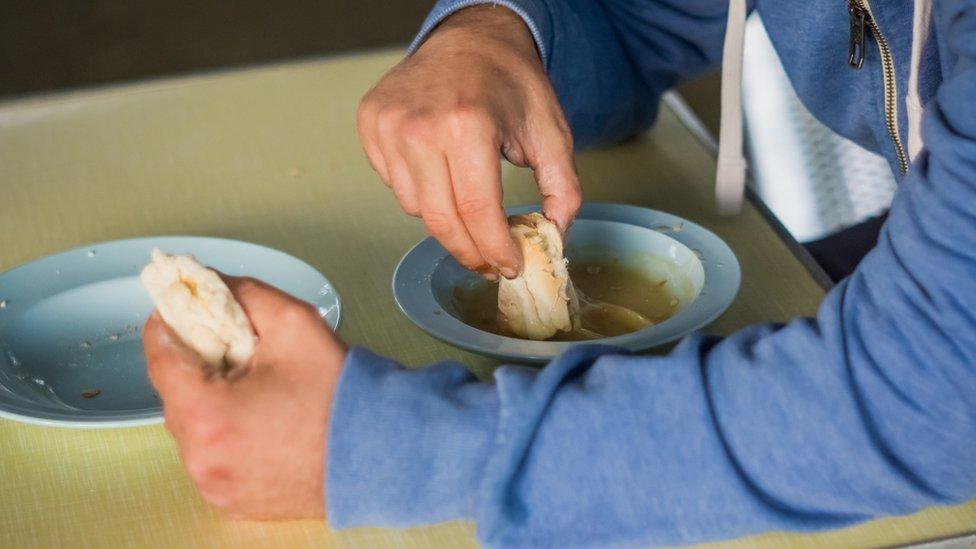Universal Credit reduction will cause families to struggle
- Published

Some families will struggle to cope with a proposed reduction in universal credit following a £20 per week rise during the pandemic, a mother-of-three has said.
Communities Minister Deirdre Hargey has joined her counterparts in Scotland and Wales asking the government to rethink plans to end the £20 benefit uplift.
There were 116,810 in Northern Ireland households on universal credit in May.
Chancellor Rishi Sunak plans to stop the extra payment in October.
He said it was only designed to be a temporary measure to help people through the pandemic.
Universal credit is a benefit for working-age people, which was introduced to replace six benefits and merge them into one payment.
In a joint letter to Work and Pensions Secretary Therese Coffey, the devolved ministers say the change would be the "biggest overnight reduction to a basic rate of social security" in modern welfare state.
Jenna McKinley, who has three children aged between two and 11, said rising bills meant the proposed reduction to the payment would be a struggle.
Ms McKinley, from Donaghadee, County Down, started receiving universal credit earlier this year after leaving her job for health reasons.
She said she had noticed price rises in her food and utility bills during the pandemic, while the back-to school uniform bill was another expense that was difficult to meet.
Ms McKinley told BBC Radio Ulster's Good Morning Ulster programme the £20 uplift helped towards those rising costs.
"There is a lot of change going on. Your food bills are going up, your electricity is going up, your gas is going up," she said.
"It is hard to be honest but I would rather let myself go than my children, I would rather them have the food than myself, heating for my kids than myself."
Kevin Higgins, from Advice NI, said Ms McKinley had described the reality for many families.
He said many households were increasingly struggling to put food on the table.
"This £20 cut is going to directly impact on families and children after a decade of austerity from Westminster and the treasuries which has introduced benefit freezes and cuts to benefits," he said.
Mr Higgins said he was deeply disappointed when Prime Minister Boris Johnson said last week that he wanted the focus to be on better paid jobs, rather than welfare.

Kevin Higgins from Advice NI says this is not the time to reduce Universal Credit
He told Good Morning Ulster some recipients of universal credit were severely disabled and ill, some of whom were terminally ill.
"They unfortunately will not be able to move into the world of work and benefit from increased wages," he said.
"This is not the time to be cutting universal credit and that £20 uplift should be made permanent."
Related topics
- Published30 August 2021

- Published5 August 2021
